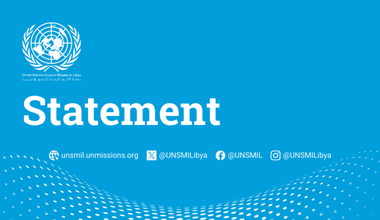UNHCR holds training on international refugee protection for Libyan officials, media and civil society
The office of the United Nations High Commissioner for Refugees (UNHCR) in Libya organized 2 three-day trainings on international refugee law this month. The first training targeted 25 journalists and reporters from Libyan local media from Tripoli, Benghazi, Sabha, Ajdabya, Zentain, Al-Bayda, and Wadi Al Shatee. The second targeted 25 people from different governmental/executive sector and justice sector, from Tripoli, Benghazi, all involved in refugee protection.
The training took place in Tunis, and offered an opportunity for various actors, involved in refugee protection, to discuss and exchange information about international refugee law and the situation of refugees in Libya as well as the right of refugees in the host country.
In addition to the training, discussions also focused on Libya’s obligations towards refugees in Libya and on the importance of international cooperation in a mixed-migration context that goes well beyond Libyan borders.
“Local authority, civil society and local media are the first ones on the ground protecting refugees. Promoting refugee law through trainings to the local actors is therefore an important aspect of UNHCR’s work. We also give a special importance on strengthening our relations with the Libyan Government and other local actors by perpetuating a constructive dialogue which aims to support Libyan government to take responsibility for refugees and asylum seekers in Libya” explains Samer Haddadin, UNHCR Chief of Mission in Libya.
Funded by the Humanitarian Aid (ECHO) of the European Commission, this training is part of a large capacity building programme developed by UNHCR in 2016. The objective is to raise awareness of the Libyan government, academia and media sectors and society on asylum, and to improve the protection atmosphere for refugees and other persons of concern (POC) in Libya.
 United Nations Peacekeeping
United Nations Peacekeeping UN
UN









